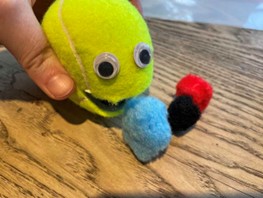Table of Contents
Enhancing Fine Motor Skills in Children: Occupational Therapy Strategies and Home-based Interventions

Fine motor skills are crucial for a child’s overall development, influencing their ability to perform daily activities, engage in academic tasks, and establish independence. Occupational therapists play a vital role in supporting children with fine motor skill development. This article explores the significance of fine motor skills, the role of occupational therapists in enhancing these skills, and practical strategies for parents to implement at home.
Understanding Fine Motor Skills

Fine motor skills involve the coordination of small muscles in the hands and fingers with the eyes. These skills are essential for tasks such as writing, drawing, cutting, buttoning, and tying shoelaces. Children develop fine motor skills through a series of stages, starting with basic grasping and progressing to more refined hand-eye coordination.
Occupational Therapists' Role in Fine Motor Skill Development

Occupational therapists (OTs) are trained professionals who specialize in helping individuals develop the skills needed for daily life. When working with children, OTs focus on enhancing fine motor skills through targeted interventions. Some keyways in which OTs can support children include:
- Assessment: OTs conduct thorough assessments to identify specific fine motor skill challenges. These assessments may include observing the child’s hand strength, coordination, and grasp patterns.
- Individualized Intervention Plans: Based on the assessment, OTs create personalized intervention plans that address the child’s unique needs. These plans often include a variety of activities and exercises to promote fine motor skill development.
- Fine Motor Exercises: OTs guide children through exercises designed to strengthen hand muscles, improve hand-eye coordination, and enhance finger dexterity. These exercises may involve using small tools, manipulating objects of different sizes, and engaging in activities that require precision.
- Sensory Integration: Sensory input plays a crucial role in fine motor development. OTs may incorporate sensory integration activities to help children better process and respond to tactile, visual, and proprioceptive stimuli.
- Adaptive Techniques: OTs introduce adaptive techniques and tools that can facilitate fine motor tasks. This might include using specialized grips for pencils, scissors, or other tools to make them more accessible to children with fine motor challenges.
Strategies for Home-based Support

Parents can actively contribute to their child’s fine motor skill development by implementing OT-recommended strategies at home. Here are practical suggestions:
- Create a Fine Motor-Friendly Environment: Arrange the home environment to encourage fine motor activities. Provide a variety of age-appropriate toys and art supplies that promote fine motor skill development, such as building blocks, puzzles, and coloring materials.
- Incorporate Everyday Activities: Embed fine motor exercises into daily routines. Activities like buttoning shirts, zipping jackets, and tying shoelaces offer valuable opportunities for fine motor practice.
- Arts and Crafts: Engage children in arts and crafts projects that involve cutting, pasting, drawing, and coloring. These activities not only enhance fine motor skills but also foster creativity.
- Play with Manipulatives: Encourage play with manipulative toys like playdough, beads, and building blocks. These activities require precise hand movements and promote the development of fine motor control.
- Outdoor Play: Outdoor play contributes to overall physical development, including fine motor skills. Activities such as playing with sand, digging, or using playground equipment can strengthen hand muscles.
- Technology Integration: While limiting screen time is important, certain apps and games can be beneficial for fine motor skill development. Choose interactive apps that involve tapping, dragging, and tracing to engage fine motor abilities.
- Cooking and Baking: Involve children in age-appropriate cooking and baking activities. These tasks require manual dexterity, coordination, and fine motor control.
OT at Transform Life
Fine motor skills are integral to a child’s overall development and significantly impact their ability to succeed in various aspects of life. Occupational therapists play a crucial role in assessing and addressing fine motor challenges. By incorporating OT-recommended strategies into daily routines, parents can actively support their child’s fine motor skill development at home. The combination of professional intervention and consistent home-based efforts creates a holistic approach that maximizes the potential for success in fine motor skill acquisition.

Transform Life is a NDIS registered organisation that provide support for your autistic child, as well as support to you as a parent to best navigate the challenges your child and family face daily.
Book your consult with an experienced Occupational Therapist at Transform Life to explore how OT can support you and your family.








